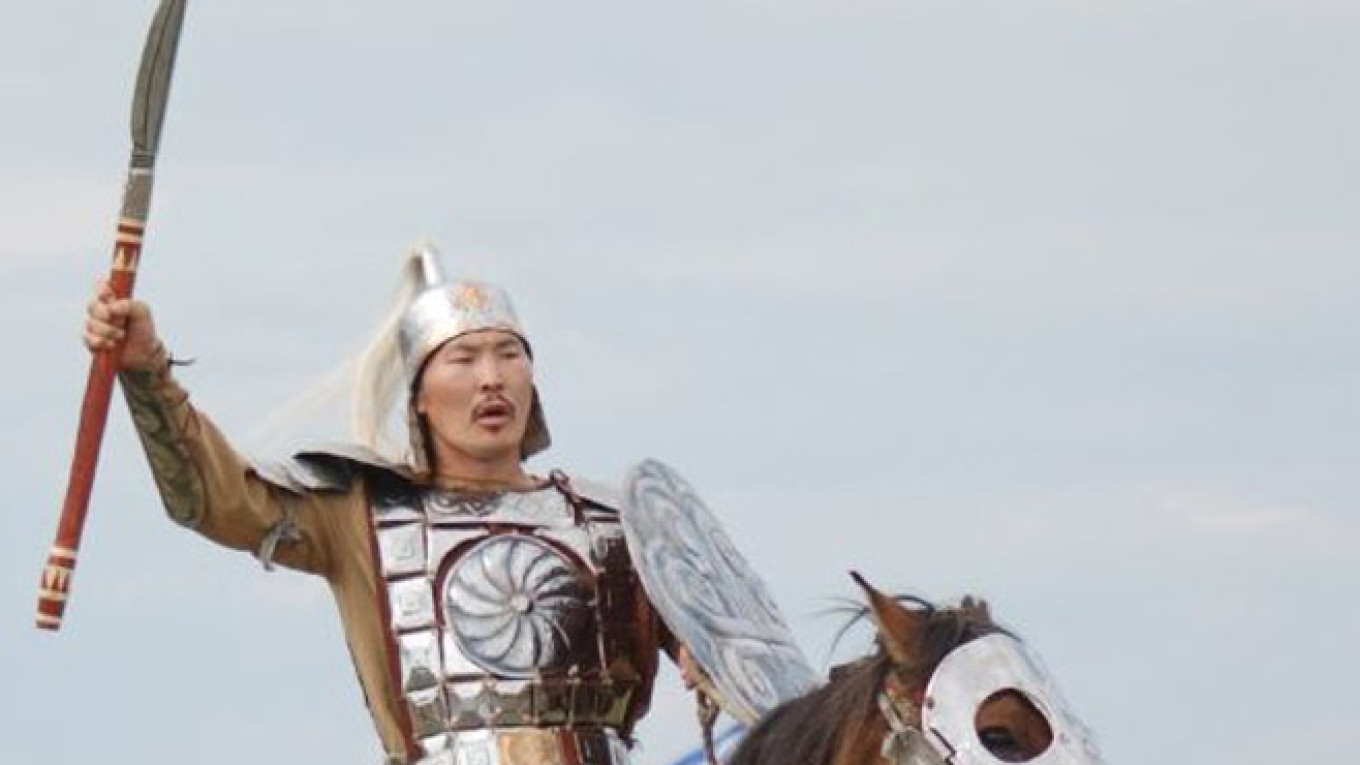Bucking the trend against the official recognition of unusual religions, the neo-pagan faith Aar Aiyy won formal recognition in the Siberian republic of Sakha, of a missionary told the Moscow Times.
Adherents of the religion have been waiting for this day for 18 years, Avgustina Yakovleva said by telephone from Sakha on Monday.
The creed was native to the original Turkic-speaking population of Sakha, also known as Yakutia, but was forced out as Orthodox Christianity spread during Russia's 17th century colonization of the region.
Still, the Yakuts "have preserved the creed inside their hearts, and can now preach it freely," Yakovleva said.
The Russian Constitution guarantees the right to freedom of belief, but while creating a "religious group" requires no formal permit, the relevant legislation sets strict limitations on the rights of such groups to proselytize and to carry out daily operations.
"Religious organizations" have more right than "groups," but registering an "organization" requires a minimum waiting period of 15 years and comes replete with exhausting inspections, including by the Federal Security Service, KGB's successor.
The registration of Aar Aiyy was finalized in late April, but was only made public on Monday, Yakovleva said.
The religion — whose name translates roughly from Yakut as "belief in higher deities" — teaches that the Universe, consisting of three worlds, possesses a Creator aided by 12 celestial helpers and is populated by numerous spirits.
The creed comprises elements of shamanism, animism and Tengrianism, a religion unique to Central Asian and Siberian nations, which was followed by Ghengis Khan's Mongols.
Yakovleva was unable to provide an estimate of the number of Aar Aiyy adherents among 's population of 950,000, including 467,000 ethnic Yakuts.
But she said the group never had any run-ins with the powerful Christian church and does not expect trouble as it plans to limit its missionary activity to — though anyone can join.
The Russian government has ramped up its piety efforts in recent years.
The Moscow Patriarchate has developed close ties with the Kremlin, and other "traditional" faiths — Islam, Judaism and Buddhism — have also received state endorsement.
But other, less entrenched creeds, such as Baptists or adherents of Krishnaism, increasingly face problems from authorities, according to anti-xenophobia watchdog Sova's 2013 report on freedom of belief in Russia.
In 2012, Prosecutors declared the annotated version of sacred Krishnaite text Bhagavad-Gita "extremist literature," though the ban was rolled back following outrage in India, an important geopolitical ally of Russia's.
Though many Yakut Shamans died during the Soviet period, neo-pagan beliefs remain strongly rooted in Yakut culture, religion analyst Roman Lunkin said by telephone Monday.
In the 1990s, neo-pagans were actually an opposition force to be reckoned with in Yakutia's parliament, though they lost all of their mandates during the 2000s, Lunkin said.
Nevertheless, Yakut neo-paganism retains popularity, and its institutionalization cannot be stopped, said Lunkin, who works at the Russian Academy of Sciences.
"This is a native folk tradition, which always was and will always exist," Lunkin said.
Contact the author at [email protected]
A Message from The Moscow Times:
Dear readers,
We are facing unprecedented challenges. Russia's Prosecutor General's Office has designated The Moscow Times as an "undesirable" organization, criminalizing our work and putting our staff at risk of prosecution. This follows our earlier unjust labeling as a "foreign agent."
These actions are direct attempts to silence independent journalism in Russia. The authorities claim our work "discredits the decisions of the Russian leadership." We see things differently: we strive to provide accurate, unbiased reporting on Russia.
We, the journalists of The Moscow Times, refuse to be silenced. But to continue our work, we need your help.
Your support, no matter how small, makes a world of difference. If you can, please support us monthly starting from just $2. It's quick to set up, and every contribution makes a significant impact.
By supporting The Moscow Times, you're defending open, independent journalism in the face of repression. Thank you for standing with us.
Remind me later.


